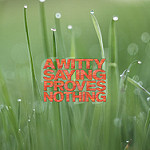Many of you are probably querying or preparing to query. Maybe you’re between agents. Whatever the case, I wanted to give a bit of an overview of the things you should keep in mind as your writing career progresses. Much like any relationship, finding the right agent, editor, publisher, etc., can be hit or miss. Everyone has the best intentions and hopes things will work out, but no one can predict the future. We enter into what we hope will be longterm partnerships after a phone call and a series of questions, questions that can never address every possible scenario. Sometimes, the partnership just doesn’t work, which is fairly common in publishing. Regardless, here are some things to consider.
Editorial vs. Non-Editorial Agent. At this point most, if not all, agents are editorial. It has become a significant requirement that agents polish clients’ manuscripts before taking them out on submission. Still, there are a variety of editorial styles. Some agents just edit the first 50 to 100 pages and then include big-picture notes. Some do extensive line and developmental editing and also include an edit letter. Some may only do an edit letter. You can ask an agent what their editing style is, but their answer won’t really matter until you know what style works best for you. Try to get a variety of peer edits in various styles. If one works better for you than another, you know exactly what you’re looking for. If they all work, excellent!
Brainstorming/Concept Collaboration. How involved in the creative process would you like your agent to be? When we go out on sub, I have my clients send me five ideas for their next project. I then give them feedback and tell them which idea(s) make the most sense to pursue based on the market and what editors have told me they’re looking for. My help in walking through a concept is one of the reasons my clients chose me as their agent. Is this something you would need as well? Would you also want feedback as you draft—say, on the first 50 pages so you know you are headed in the right direction? If so, then ask potential agents if this is one of their strengths.
Career Management. In addition to helping with concept building and brainstorming, some agents also give career-management advice. This is helpful if you want to switch gears, perhaps moving from adult to YA or vice versa. An agent can guide you through that career transition, which might include rebranding you as an author or launching you under a new pen name.
Negotiations. How does your agent/agency negotiate? You don’t want to work with someone who is too soft and may push back only lightly. But you also might be turned off by someone who is too aggressive. It is fair to ask an agent what kinds of deal and contract terms they might fight for on your behalf and why. You might not care as long as they can get you a solid book deal, but negotiation is a huge part of what an agent does, so it never hurts to be aware of how your potential agent handles it.
Personality. Lastly, is personality important to you? What kind of personality are you looking for in an agent? Do you want someone friendly? Personable? Is it okay if they only contact you when necessary? Do you want someone patient who will answer all your questions no matter how many you have or how often you ask? Do you want a hand-holder? A shark? That’s a fair thing to want to discern. And agents might not know themselves where they fall. Reach out to their clients. Even if you are just querying and don’t have an offer or rep, you might be able to piece together some clues based on what clients say about their agents online or in the acknowledgments of their books.
Now that you know some agent-seeking basics, you can research confidently. There is still no guarantee that you’ll find the perfect fit for your entire career, but this will certainly help you figure out what you really want at this early stage.
Good luck!
Creative Commons Credit: Apichart Meesri










